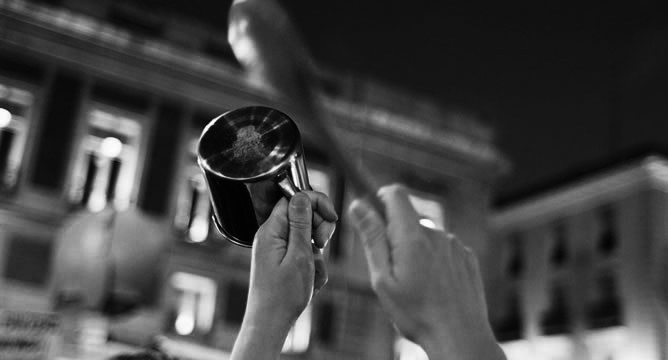
What does it mean to “come after”? Does it mean we are destined to live with the sad remnants of futures past? That is, after all, what they have been stating for so long now, those who endlessly mourn the passing of a time when events still had a place in the great order of things, those who retrospectively prophecize the beginning of the end, as fated destiny of a history in ruins that has perpetually been piling up wreckage upon wreckage. Does it mean we are living through the end of times, bound to wait for an improbable insurrection to come? After all, that is what we have learned from those who present us with the enigma of a new interminable future, as the horizon that will violently awaken us from the slumbering sleep that has prevented us from fulfilling the promises of the past. Is that where we find ourselves now, roaming in the twilight times between regret and expectation, between the time of an end on hold and the time of a new dawn in infinite suspension? Forever haunted by the ghosts of what should have been, hiding in the shadows of what will be?
With all these comings and goings between past and future, are we not at risk of loosing sight of our present? Is it not possible to rather think of “coming after” as a continuous exploration of the present moment, on the rhythm of our own steps, in the confidence of our own gaze? Without a beginning to contemplate or an end to anticipate, without point of departure or point of closure, where would we go? Are we going somewhere at all? We all know what they say, those prophets of disaster and redemption: that there is no use in trying to deviate from the path of historical necessity without map or guide, that there is no point in questioning the naturalness of the structure of our lives without perspective on a time to come. But where we are now, where we choose to be, time doesn’t commence, and it doesn’t culminate, it continues, it continues to happen. Make no mistake, it is also up to us to make it happen, to take it in, to try to take a hold of its course, without ever knowing for sure where the journey will be taking us. We will fail, and we will have to learn to fail. “Ever tried. Ever failed. No matter. Try Again. Fail again. Fail better”?
Perhaps it’s too easy. Too easy to say we don’t know. Too easy to rejoice in the absence of strategic reason. Too easy to dwell on our micro-revolutions, to change lifestyles, to live differently, consume consciously, behave conscientiously. Too easy to withdraw from the spectacle of consumption in order to escape the empire of necessity. “Coming after” does not only involve changing our way of living in this world, it also means committing ourselves to the wager of composing another one. It means that, in putting our confidence in what we see and do in the present moment, we must also try to invest in its prolongation, in the believe that there are presents that actually do create possible futures. We all know that failures and disillusions will continue to come our way, but isn’t it precisely this vulnerability that is our strength, that what allows us to reshape the world through the eyes of many? Isn’t it this sense of disorientation that makes it possible to orient ourselves, to persist in the curiosity of our gaze, to invent new ways of seeing, and act upon them? “Apart, we are together”, a poet once wrote. Perhaps, amid our division, in our coming after, we are bound by the fragility of what we are bearing together: in the face of the present intolerable and the as yet unimaginable, we are all afraid. Perhaps we should let each other know that that’s ok.
(Some thoughts after reading Sarah Jaffe’s ‘Post-Occupied‘)